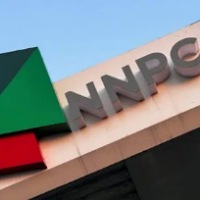Gas
George Mitchell, architect of US shale gas revolution, dies at 94
WASHINGTON – George Mitchell, the man widely credited with launching the US hydraulic fracturing revolution with his work in the Barnett shale of North Texas, died of natural causes at the age of 94.
A spokesperson confirmed that Mitchell passed away on Friday in Galveston, Texas. A statement said Mitchell died surrounded by his family.
The legendary Texas oilman, formerly the head of Mitchell Energy, defied doubters by applying a combination of horizontal drilling and high-volume slickwater fracturing to the Barnett, turning the field outside Fort Worth into one of the biggest gas plays in the US.
 The technology he pioneered in the 1990s over 10 years of experimentation has turned the the US into an onshore oil-and-gas producing behemoth.
The technology he pioneered in the 1990s over 10 years of experimentation has turned the the US into an onshore oil-and-gas producing behemoth.
“Texas has lost a true giant and innovative leader in the oil and gas industry today,” Railroad Commission Chairman Barry Smitherman said in a statement.
“Because of Mitchell’s persistence in pursuing for years the development of hydraulic fracturing and horizontal drilling in North Texas’ Barnett shale, we are today witnessing an unprecedented boom in domestic energy production and the associated economic benefits in Texas and nationwide.”
Mitchell Energy sold out to Devon Energy in 2002 for $3.5 billion; George Mitchell was the largest shareholder of the Oklahoma City-based independent.
Devon founder and executive chairman Larry Nichols called Mitchell a “true visionary and a pioneer”.
“George believed when very few others did about the potential for producing natural gas from shale,” Nichols said in a statement to Upstream. “He has been a tremendous friend to so many, including me. He will be missed.”
Mitchell’s family said his story was “quintessentially American”.
Born in 1919 in Galveston to poor Greek immigrants, Mitchell’s mother wanted him to become a doctor.
Instead, a teenage Mitchell started working in the Louisiana oilfields as a roustabout with his brother John, an engineer for Exxon. From the beginning, George was a student of oilfield operations.
Mitchell graduated top of his class from Texas A&M in 1940, completing a five-year course in petroleum engineering and geology in four years.
A professor encouraged him to set out on his own, advice he would heed following service in World War II. Mitchell would go on to become one of the most successful wildcatters in a state full of them.
He started out by forming a consulting business with his brother and another partner and began lining up drilling money.
He studied well logs late into the night, developing a keen understanding of the rich Texas geology.
He had established himself well by the time he turned his attention to the Barnett, which he knew was bursting with gas that had been inaccessible up to that point.
Industry veterans – even some within his own company – said he was a fool to even try tapping the tight gas shale.
“All the geologists and engineers told me you are wasting your time Mitchell,” he told Upstream in 2011. “I heard it for a long time, but we tried everything.”
Devon’s Nichols was one of those closely watching Mitchell’s results.
“We all had our doubts, but I know George, and I knew better than to bet against him,”Nichols told Upstream in 2011.
After millions of dollars and nearly a decade of research, the Barnett hit big. The global industry has taken note, and the scope of the revolution he started is only starting to take shape.
– UPSTREAM
Gas
Platform Petroleum targets a billion-dollar investment

Announces ambitious expansion plans
Platform Petroleum says the company is targeting a billion-dollar investment as it announces an ambitious strategic plan to bring 3 marginal fields into production by 2025, with a target of 10,000 barrels of oil and at least 50 billion standard cubic feet of gas per day.
Speaking on the sidelines of the 2024 Offshore Technology Conference (OTC) in Houston, USA, Chief Dumo Lulu-Briggs, Chairman of Platform Petroleum said that the company has scheduled a roadshow in London this June 2024 to raise extra funding to finance their ambitious expansion plans.
“The upcoming roadshow aims to attract equity partners and prepare for future opportunities, targeting a billion-dollar investment. We are seeking partners ready to invest in Nigeria’s oil and gas potential.
Our goal is to showcase the country’s vast opportunities and its potential to international investors” Lulu-Briggs said.
Platform Petroleum’s roadshow in London will highlight the company’s efficient production, upgraded flow stations, increased capacity, and achievements in nearly zero emissions.
With about one percent gas flare currently, Platform aims for zero gas flares by the last quarter.
“Nigeria is a vast market, and Platform Petroleum is thinking big. With the government’s ambitious plans, such as the Lagos-Calabar coastal line, Platform is poised for growth; pushing itself to the next level, building on a strong foundation and following Seplat’s successful precedent”, Lulu-Briggs said.
Despite being a small company, he emphasized that Platform Petroleum has demonstrated significant success and efficiency, showcasing that smaller oil and gas entities can indeed achieve remarkable feats adding that he believes that the company deserves recognition and more assets.
“Platform Petroleum is ambitious, aspiring to become a tier-1 company akin to international oil companies (IOCs) or a tier-2 company like Seplat. Interestingly, Seplat originated from Maurel & Prom, Shebah Petroleum, and Platform Petroleum, and today stands as a major player in the industry.
This history underlines Platform’s potential for substantial growth”, Lulu-Briggs said.
Furthermore, the Platform Petroleum Chairman said that the Offshore Technology Conference (OTC) is a crucial event for promoting Nigeria’s significant market potential.
“Partnering with the Petroleum Technology Association of Nigeria (PETAN) at OTC is key to attracting investment. The current proactive government understands the necessity for economic growth, and Platform is prepared to leverage every opportunity in the oil and gas industry to contribute to this expansion”, he concluded.
Breaking News
NNPC JV Unveils New Crude Oil Grade ‘Nembe’, Commences Exports With 1,900 Barrels

Precious ADELOLA
The NNPC/Aiteo Joint venture has announced the introduction of Nembe Crude Oil Grade, a new crude oil grade into the international crude oil market.
The announcement of the Nembe Crude Oil Blend, produced by Aiteo, the Operator of the NNPC/Aiteo Oil Mining Lease (OML) 29 Joint Venture (JV), was made at the ongoing Argus European Crude Conference in London, on Tuesday.
OML 29, an asset located onshore Nigeria, is operated by Aiteo Eastern Exploration & Production Ltd, Africa’s leading indigenous hydrocarbon producer, following a historic acquisition from Shell in 2014.
The Nembe Crude was previously blended with the popular Bonny Light grade and exported via the Bonny Oil & Gas Terminal.
The unique selling point of the Nembe Crude Oil grade with an API gravity was highlighted by both the Aiteo E & P and NNPC Limited Leadership at the Argus Conference in London.
The Nembe Crude Oil grade also has a low sulphur content and low carbon footprint due to flare gas elimination, fitting perfectly into the required spec of major buyers in Europe.
Two cargoes of 950,000 barrels each of the Nembe Crude Oil grade have since been exported to France and the Netherlands. With its attractive Assay of API 29 and low sulphur content, the Nembe Crude Oil grade commands a premium to the global Brent benchmark.
With the NNPC-Aiteo OML 29 JV back on-stream, Nigeria now boasts of an additional crude oil export of 2 Cargoes at 950,000 barrels each per month and 1.2 Bcf of export gas monthly.
This remarkable achievement signals the commencement of activities at Nigeria’s newest crude oil terminal, the Nembe Crude Oil Export Terminal (NCOET), which was licensed in line with the extant laws and Crude Oil Terminal establishment regulations.
The terminal was conceived as a Floating Storage and Offloading Vessel (FSO) with a storage capacity of two (2) Million Barrels and the ability to offload crude oil to any export tanker from AFRAMAX to Very Large Crude Carriers (VLCC).
It has a loading capacity of 25,000 barrels per hour and will be exporting over 3.6 million barrels of Crude oil monthly at full scale of operation.
Currently, hydrocarbon production from OML 29, which was hitherto constrained due to evacuation challenges owing to the security issues around the Nembe Creek Trunk Line (NCTL) corridor, has now been resolved through a collaborative and creative approach that led to the innovation of the Alternative Crude Oil Evacuation Solution.
The Argus European Crude Conference 2023 in London is a gathering of energy majors, refiners, NOCs, traders, financial institutions, and other representatives from across the global oil markets. The event also provides a critical opportunity for business leaders to connect, discuss, share and learn from one another.
Business
NNPCL, NCDMB, Oil Majors Agree Improved Efficiencies

Modupe Asudo
Major players in the oil and gas sector in Nigeria led by the Nigerian National Petroleum Company Limited (NNPCL) have covenanted to optimise operations by reducing contracting cycle to not more than 180 days.
A statement issued by the company disclosed that the Memorandum of Understanding (MoU) to this effect was endorced on Monday in Abuja at the company’s head office.
Other parties to the the contract include, the Nigerian Content Development and Monitoring Board, (NCDMB) and international oil companies.
Biztellers reports that an optimised contracting cycle was expected to improve the ease of doing business, reduce cost and drive efficiency, which would eventually translate to production growth, increased revenues, and ultimately improved profitability.
In addition, the MoU was expected to contribute significantly to the double-digit economic growth rate agenda of the Federal Government and generate value for all stakeholders, including investors, companies, host communities and Nigeria.
Notable elements in the framework of the MoU, going by the statement, included a reduction of the contracting cycle for open competitive tender, selective tender, and single sourcing tender to 180, 178, and 128 working days respectively.
This was in contrast with the current best effort performance of 327, 333, and 185 working days respectively.
According to Group Chief Executive Officer, NNPCL, Mele Kyari, signing the agreement portends exciting times for Nigeria’s oil and gas industry, in addition to standing as a bold testimony that the company was plunging into the future of hope, productivity and success.
Kyari, represented at the occasion by Executive Vice President, Upstream, NNPCL, Oritsemeyiwa Eyesan, pointed out that with oil and gas as the bedrock of Nigeria’s economy, there was need to get the contracting process in the Industry right so as to get the economy back on track.
In his remarks, Executive Secretary, NCDMB, Simbi Wabote, described the MoU as a way forward and a critical step towards enhancing the nation’s crude oil production.
















